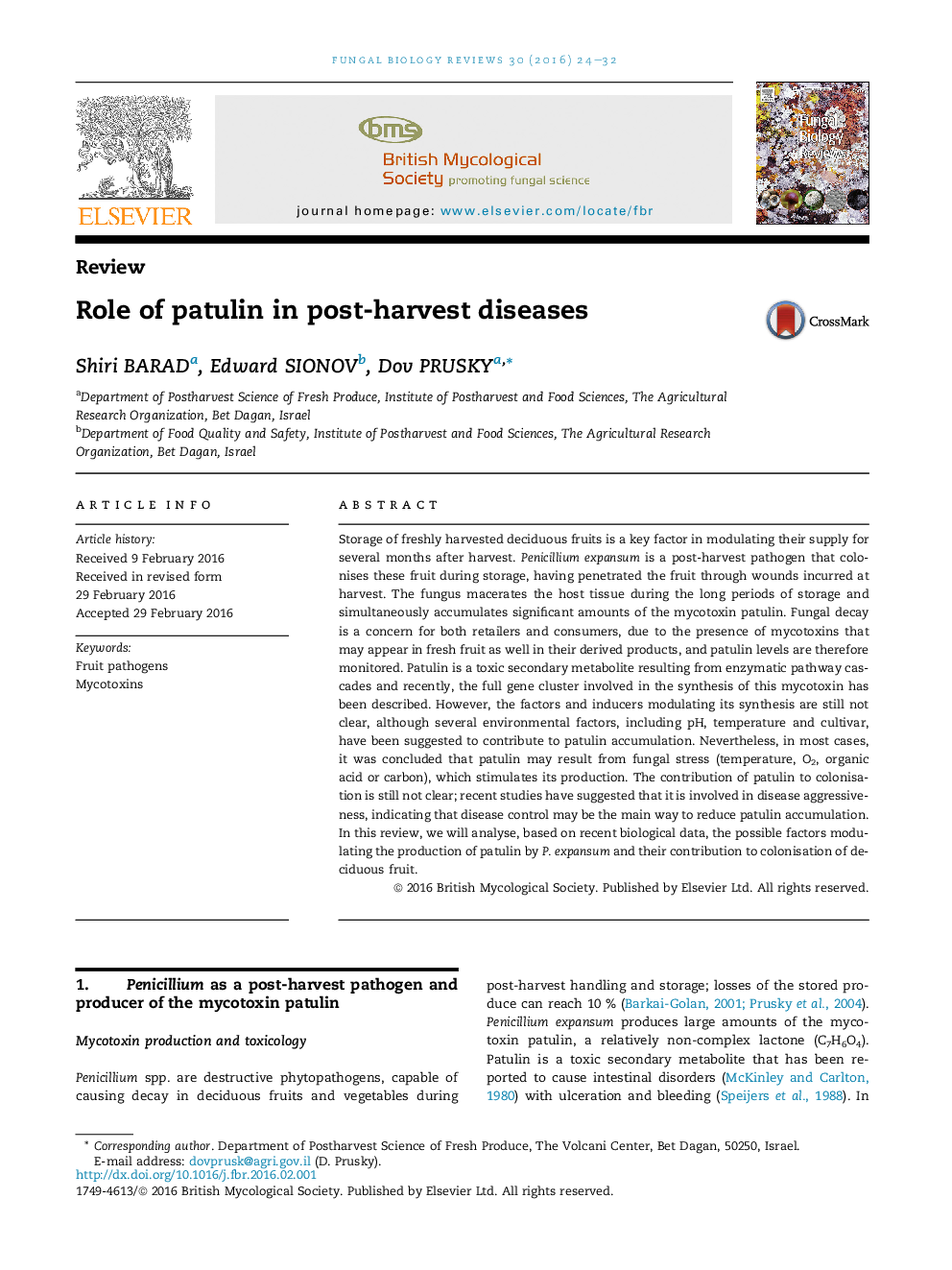| Article ID | Journal | Published Year | Pages | File Type |
|---|---|---|---|---|
| 2180448 | Fungal Biology Reviews | 2016 | 9 Pages |
Storage of freshly harvested deciduous fruits is a key factor in modulating their supply for several months after harvest. Penicillium expansum is a post-harvest pathogen that colonises these fruit during storage, having penetrated the fruit through wounds incurred at harvest. The fungus macerates the host tissue during the long periods of storage and simultaneously accumulates significant amounts of the mycotoxin patulin. Fungal decay is a concern for both retailers and consumers, due to the presence of mycotoxins that may appear in fresh fruit as well in their derived products, and patulin levels are therefore monitored. Patulin is a toxic secondary metabolite resulting from enzymatic pathway cascades and recently, the full gene cluster involved in the synthesis of this mycotoxin has been described. However, the factors and inducers modulating its synthesis are still not clear, although several environmental factors, including pH, temperature and cultivar, have been suggested to contribute to patulin accumulation. Nevertheless, in most cases, it was concluded that patulin may result from fungal stress (temperature, O2, organic acid or carbon), which stimulates its production. The contribution of patulin to colonisation is still not clear; recent studies have suggested that it is involved in disease aggressiveness, indicating that disease control may be the main way to reduce patulin accumulation. In this review, we will analyse, based on recent biological data, the possible factors modulating the production of patulin by P. expansum and their contribution to colonisation of deciduous fruit.
